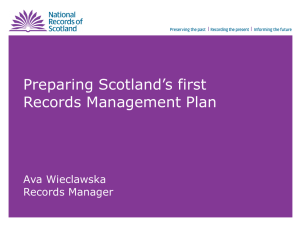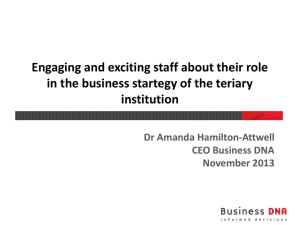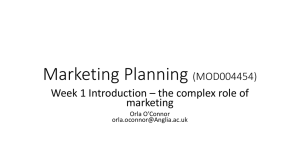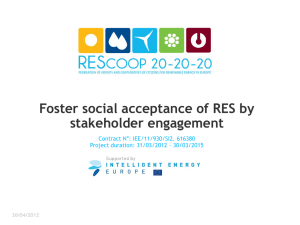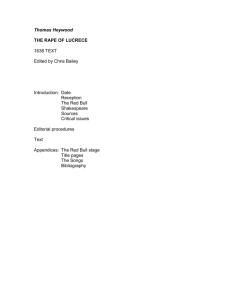Heywood Integrated Care Organisation
advertisement
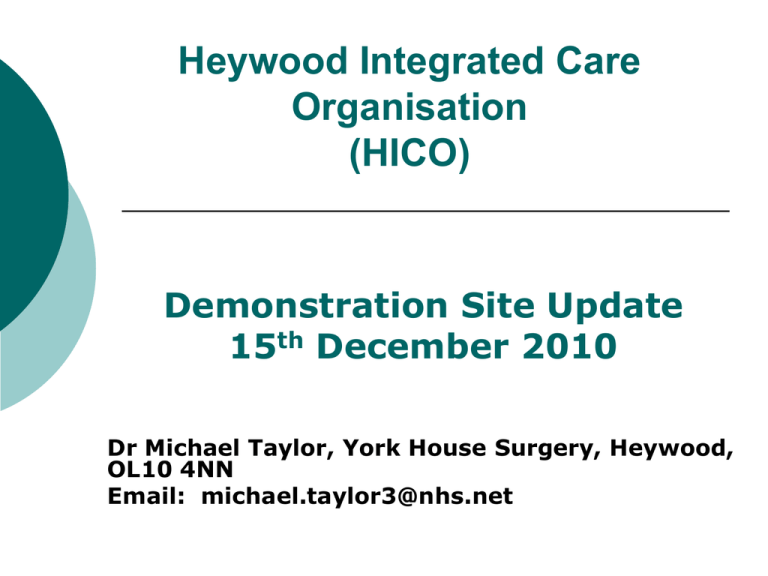
Heywood Integrated Care Organisation (HICO) Demonstration Site Update 15th December 2010 Dr Michael Taylor, York House Surgery, Heywood, OL10 4NN Email: michael.taylor3@nhs.net Heywood Integrated Care Organisation The Glass That is Half Empty Heywood Integrated Care Organisation Introduction: Aims Clarify wellbeing services Increase public awareness Facilitate easier access Help the work vulnerable Maximise self care Guide people to appropriate support Heywood Integrated Care Organisation Introduction: Objectives 1 Use population approach Improve physical care of those with wellbeing issues Improve liaison between GP and PCMHT Reduce stigma Heywood Integrated Care Organisation The Population as a Patient Heywood Integrated Care Organisation Introduction: Objectives 2 Reduce frequent attenders Reduce frequent flyers Sign post to wellbeing services Heywood Integrated Care Organisation Process Outcomes Complete de-stigmatisation Paperless referrals Short waiting times Seamless care achieved! No, really!! Attendance rates of 82% Simple feedback loop to adjust the volume of referrals. Heywood Integrated Care Organisation Methodology: Organisational diagram Senior Commissioning Team NHS HMR Mental Health Commissioning Team HICO Stakeholder Group HICO Mobilisation Team Heywood Integrated Care Organisation Methodology: Team Two Heywood GPs A Project Manager, Public Health, (Chair) An Operational Manager, PCMHT A Graduate Mental Health Worker A Practice Manager A Senior Commissioner, Rochdale MBC A Lead Commissioner, NHS HMR Heywood Integrated Care Organisation Methodology: PDSA Heywood Integrated Care Organisation Methodology: Questionnaires Warwick-Edinburgh Mental Wellbeing Scale (WEMWBS) Patient Health Questionnaire 9 (PHQ9) General Anxiety Disorder Assessment (GAD 7) Heywood Integrated Care Organisation Patient choice of treatment Mental health worker Nil Wellbeing worker 1/3 Medication 1/3 Watch and wait 1/3 Heywood Integrated Care Organisation Evaluation: Problems Rochdale MBC support difficulties. Cultural differences especially PCMHT and GP. Wellbeing Worker overwhelmed. Scarcity of Wellbeing Worker. WEMWBS completion difficulties in waiting room. Heywood Integrated Care Organisation Evaluation: Lessons Learned Wellbeing is not stigmatised. GP practices are suitable environments for wellbeing workers. Wellbeing leaves responsibility with the citizen. A better, quicker, cheaper service is realistically achievable. Roll-out is easy. Heywood Integrated Care Organisation Evaluation: PCMH perspective 60% of patients referred complex. WW reported being overwhelmed. WW compared and contrasted the cultures. Better liaison with the GP practice about patient population was a learning outcome. Invaluable learning experience. Heywood Integrated Care Organisation Evaluation: Academic 1 Services provided are seen as positive alternatives. Access to psychology via Wellbeing Worker is more acceptable. Relational and cultural tensions were addressed. Understanding was improved. Increased awareness of wellbeing services. Heywood Integrated Care Organisation Evaluation Academic 2 Speed-dating event was innovative and cost effective. Regular PDSA meetings were challenging and important. The WW role should be reviewed. WW’s should be more involved with the GP practice. GPs to realise to abilities and limitations of the WW. Heywood Integrated Care Organisation Conclusion: Patient perspective No stigma Full consultation Choice Quick help Local help Place of comfort Seamless care (“no glitches”) Heywood Integrated Care Organisation Conclusion: Practice Perspective In house Need to understand the WW Need for signposting Reduced DNAs Prioritisation of work-vulnerable of great help Heywood Integrated Care Organisation Conclusion: PCMH perspective Location crucial More capacity needed Different solutions for different practices Incorporation of learning into IAPT Heywood Integrated Care Organisation Conclusions: L.A. Perspective Can include greater numbers of citizens. Responsibility for self-improvement. Builds up community assets. One stop health and social care in citizens interest. Demonstrates benefit of joint commissioning. Heywood Integrated Care Organisation Conclusions: NHS Perspective Better, quicker, potentially cheaper. Transformation not additional. Different ‘populations’ may have different needs. Uses assets as well as services. May reduce secondary care demand. Heywood Integrated Care Organisation Next Steps: Five Ways to Wellbeing website. Supporting community assets. Commissioning in-house services. Incorporating wellbeing into IAPT. York House Surgery Website: www.5w2w.org Heywood Integrated Care Organisation HICO Outcomes Wellbeing score 39.6 Regional average 55.5 Wellbeing not stigmatised Seamless care Opportunity to be better, quicker, cheaper Heywood Integrated Care Organisation Relationship between WEMWBS scores and PHQ-9 scores 70 60 40 30 20 10 PHQ-9 26 24 22 20 18 16 14 12 10 8 6 4 2 0 0 WEMWBS 50 Heywood Integrated Care Organisation What WEMWBS Scores Mean 60-70 50-60 40-50 Life treats you well No big worries Life has its ups and downs 30-40 Life can be a worry 20-30 Life’s a big hassle 14-20 If you are not already in treatment see your GP now Heywood Integrated Care Organisation The Glass That is Half Full Disorders of mood Wellbeing Focus of treatment Focus of recovery Heywood Integrated Care Organisation (HICO) Demonstration Site Update 15th December 2010 Dr Michael Taylor, York House Surgery, Heywood, OL10 4NN Email: michael.taylor3@nhs.net



